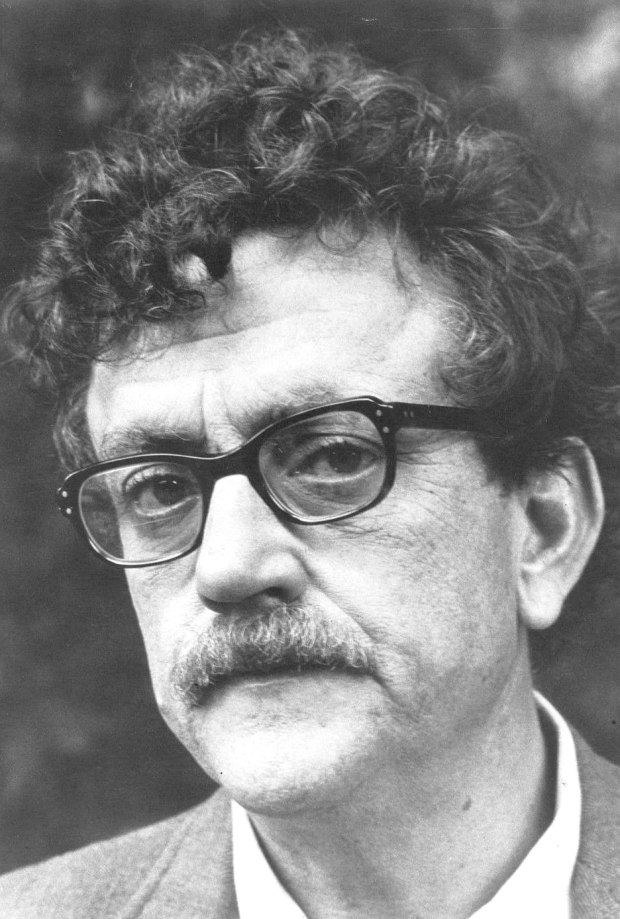Mother Night is one of Vonnegut’s minor novels, but still a strong entry. With my goal of reading all of his novels, (as well as Palm Sunday and Man Without a Country) I feel like I’m getting an interesting perspective of the man as a producer of writing. There’s something always recognizably consistent in the tone and in the themes, but each book is unmistakably it’s own thing. While not as strong as Cat’s Cradle or Slaughterhouse-Five, Mother Night still hits all of the Vonnegut high points: a painfully aware protagonist looking back on things, a subversive view of normative values, and an always slightly askew perspective on human interactions.
The protagonist in this book is an American propaganda officer for Nazi Germany, a man who did his job so well that even though he was a double agent relaying messages for the US, his rhetoric may have been more damaging than his counterintelligence was redeeming. This central conflict allows Vonnegut to explore the gradations of morality in such an ambiguous situation, complicated dramatically by the fact that Howard is narrating this story, and is almost certainly very, very unreliable. Who is Howard writing this for, and to what end?
It’s a damn good book that forces some great questions, but it doesn’t go deeper than that. Like a lot of his work, this is a book that would have knocked me on my ass if I’d read it twelve or thirteen years ago. That’s not to call the thing juvenile, since these are serious and adult concerns, but it does lack the layers and nuance of Faulkner or Kundera. But, man, it’s hard to find anything as much fun and as easy to read as Vonnegut, and the fact that he manages to balance that with the moral ideas and quandaries in a book like Mother Night is pretty impressive.

